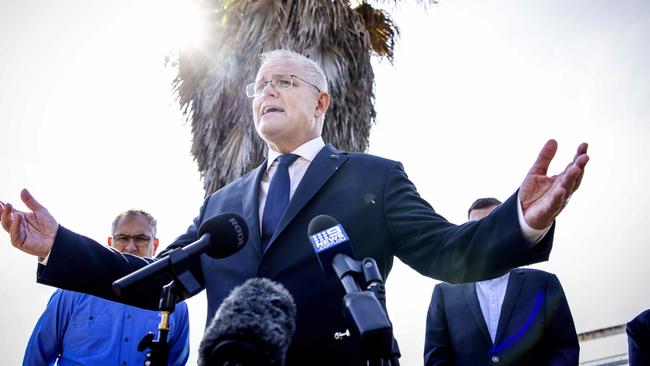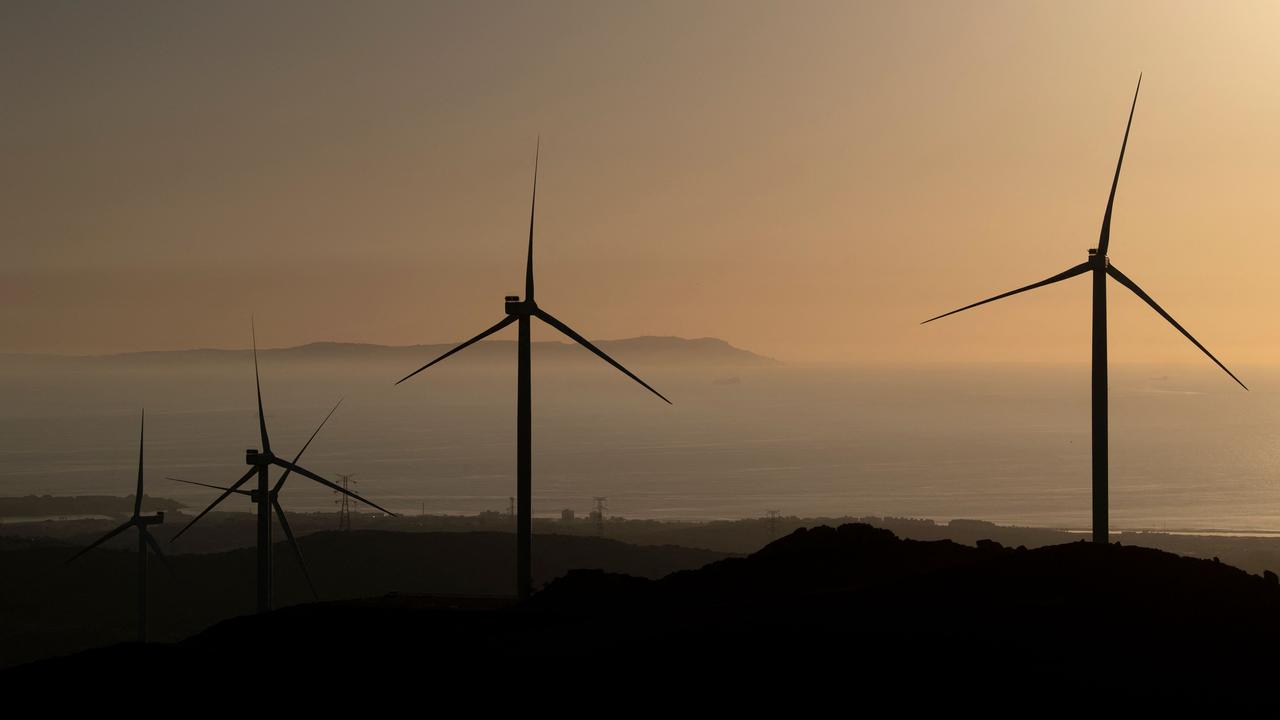The long and winding road to saving Portland’s alumium smelter
After a year of negotiations to try to save its Portland smelter, Alcoa was taking no risks at the final hour.

Business
Don't miss out on the headlines from Business. Followed categories will be added to My News.
After a year of negotiations, Alcoa was taking no risks at the final hour. The US metals giant had finally landed a deal to save Victoria’s Portland aluminium smelter, a manufacturing plant just months away from potentially shutting its doors unless a rescue plan could be sealed.
Before it could announce the package officially on Friday, it needed to get contracts signed by the three energy giants who will underpin the new power contract: incumbent supplier AGL Energy along with newcomers to Portland — Origin Energy and Alinta.
All three companies were shrouded in secrecy amid concerns that sharing who had won the contracts may look as though the electricity generators were operating in unison.
Alcoa booked the Bristol room at Melbourne’s Grand Hyatt hotel all day on Thursday, allowing it enough time to collect individual signatures in separate sittings for the three power players.
The sensitivity partly dated from the long, drawn-out saga of safeguarding Portland.
AGL, which currently covers the entire generation needs for Portland, had initially approached the Australian Competition and Consumer Commission to open talks over whether it would allow a consortium of the state’s major electricity companies to work together on a contract.
That was shelved a few months later.
Plan B saw Alcoa directly approach the incumbent’s rivals to consider bidding for the contract over concerns that AGL may not have the appetite to take on the entire weight of supply by itself.
The three agreed contracts sealed on Thursday were negotiated on an individual basis rather than via an approach to the ACCC.
A few hours later Scott Morrison and Federal Trade Minister Dan Tehan joined Treasurer Josh Frydenberg and 50,000 fans for Richmond vs. Carlton at the MCG.
Morrison has made a strong pitch for a manufacturing led recovery as Australia emerges out of COVID-19, but has endured an uneven start to the year.
ExxonMobil’s decision to shut the Altona refinery in Melbourne put 300 jobs in peril and concerns continue to swirl over the fate of Sanjeev Gupta’s industrial empire — including the Whyalla steelworks — following the collapse of his main lender, Greensill Capital.
Still, Morrison’s trek to the Portland smelter on Friday morning underlined the Commonwealth’s focus on grabbing a win of sorts, even if it took a combined $155m of subsidies split evenly between the federal and Victorian governments to pull off the deal.
Victorian Treasurer Tim Pallas was upfront about how difficult the deal had been to land, a nod to the fact it had only been kept alive over the last decade by a succession of rolling subsidy deals from the state government, worth $200m over four years when last signed in 2017.
“If you’d asked me a couple of years ago I’d probably have told you I didn’t think this could be done,” Pallas said at the smelter on Friday.
“I didn’t think we’d be able to get to the point where the generators could find a price of sufficient value for the arrangements that were being put in place. A few years ago we did have this challenge and I said I want you to give it a red hot crack. And you surprised me. It was more than a red hot crack.”
The Andrews government has been under the spotlight after inking a secret financial deal to keep EnergyAustralia’s Yallourn coal plant running out through 2028.
A decision to shut down Portland would remove the state’s single biggest power user and pile pressure on Yallourn, which supplies 22 per cent of Victoria’s electricity but is the next facility due to exit the state’s power grid.
Energy expert Dylan McConnell said the two announcements in quick succession were likely linked.
“There has always been symbiotic speculation on the fate of Yallourn and Portland — that is, if Portland goes, so will Yallourn, and vice versa,” said Mr McConnell from the University of Melbourne’s Climate and Energy College.
The Victorian government’s “coming to the table with Alcoa before the Yallourn announcement would have strengthened EnergyAustralia’s hand in those negotiations — or Alcoa’s for that matter. It at least had some impact on the two deals.”
While speculation on the precise nature of the Victorian government support will continue to swirl, analysts said the hefty subsidies showed Portland hasn’t been viable without government support.
“The Portland smelter hasn’t been profitable through the cycle. A potential lowering of the power cost could help prevent future losses, although there is no disclosure of the power price, potential government support, and what the ultimate cost profile now looks like at the asset,” JPMorgan said on Friday.
Portland may have won a hard fought five-year reprieve but questions over its long-term future will remain.
Originally published as The long and winding road to saving Portland’s alumium smelter



